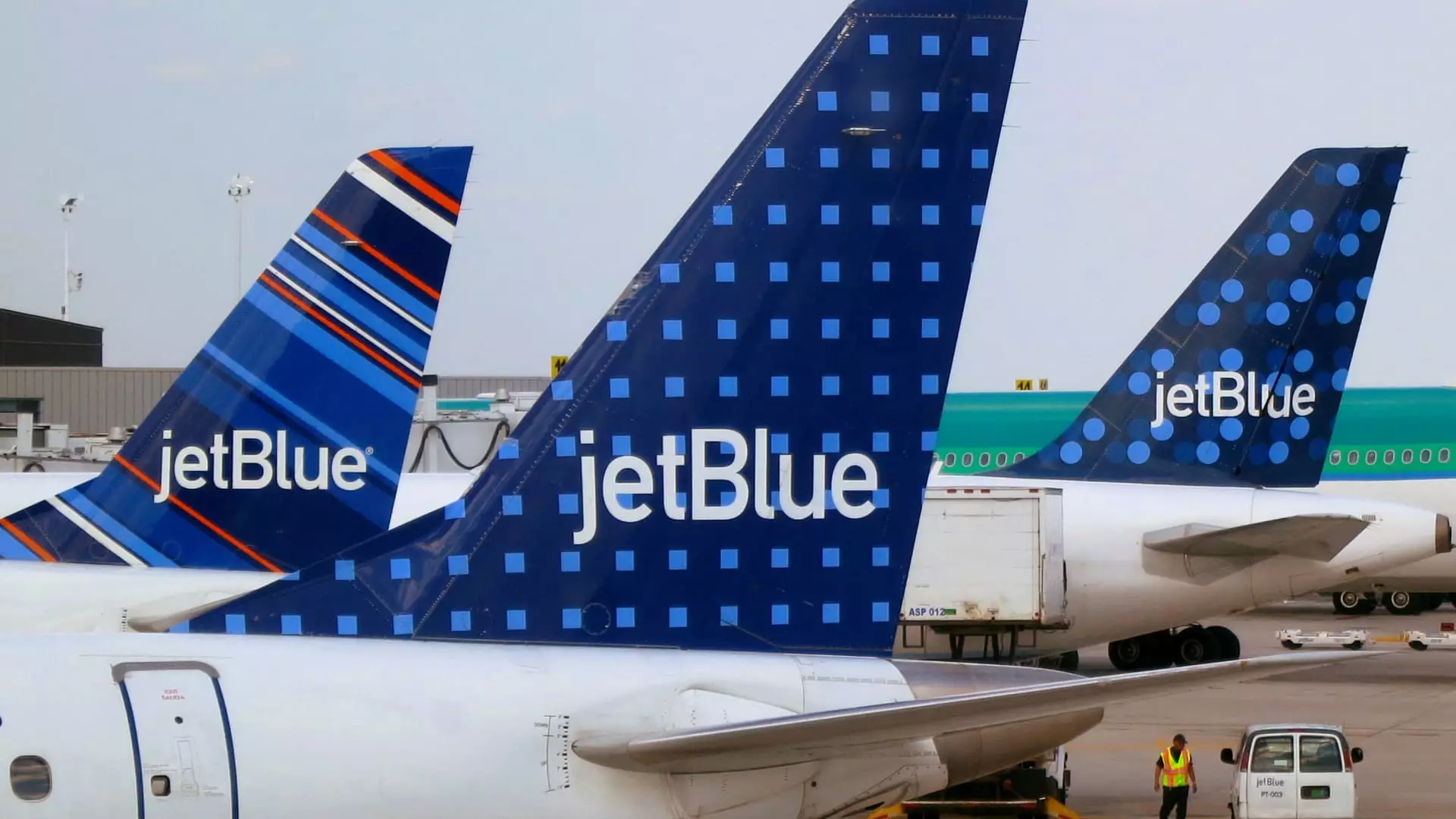In a significant move that underscores the Department of Transportation’s (DOT) commitment to accountability in the airline industry, JetBlue Airways has been fined $2 million for chronic flight delays. This decision marks the first time the DOT has imposed such a penalty, signaling the seriousness with which regulatory agencies are now addressing delays that undermine consumer trust and frustrate travelers. The airline faced scrutiny for operating four specific routes, which experienced over 145 delays from June 2022 to November 2023, predominantly affecting flights between John F. Kennedy International Airport (JFK) in New York and Raleigh-Durham International Airport, as well as services between Fort Lauderdale and Orlando.
The DOT has outlined clear parameters for deeming a flight as chronically delayed. Flights that operate at least ten times a month and arrive more than thirty minutes late for over fifty percent of those flights fall under this category. In this case, JetBlue was responsible for more than seventy percent of delays on these routes, painting a stark picture of reliability issues. Transportation Secretary Pete Buttigieg emphasized that this action should inform the greater airline industry that timetables must be reflective of operational realities. This kind of transparency is essential not only for customer satisfaction but also for maintaining professional standards across the industry.
In response to the fine, JetBlue underscored a broader concern that many airline executives share regarding systemic issues in air traffic management. Their statement reflected a call for government intervention in improving staffing for air traffic controllers and modernizing the air traffic control (ATC) system. JetBlue asserted that accountability for flight reliability should not fall solely on airlines, but that the U.S. government should also play an active role given its control over air traffic operations. The airline’s argument draws attention to a critical infrastructure element that significantly influences flight schedules and delays, as inadequate staffing and outdated technology can exacerbate issues even for the most well-intended airlines.
Current Performance Metrics and the Road Ahead
Despite the recent turmoil, data indicates that JetBlue is making strides in improving its on-time performance, increasing from 64.9% in the previous year to 71.3% in 2024. However, ranking ninth out of ten U.S. carriers does not inspire confidence. This improvement, while commendable, highlights the ongoing challenge of navigating one of the world’s most congested airspaces. As the airline industry grapples with these issues, the importance of operational integrity becomes more pronounced. Customers need to feel assured that their interests are being prioritized, particularly as travel volumes rebound post-pandemic.
Looking at the Future: A Need for Systemic Change
To genuinely address chronic delays, a multi-faceted approach is required. First and foremost, the ATC system needs urgent modernization to improve efficiency, safety, and response times. Without significant investment in technology and human resources, the aviation industry could face ongoing disruptions that frustrate travelers and tarnish the public’s perception of air travel as a reliable mode of transport.
Moreover, it might be time for the DOT to expand its oversight beyond just punitive measures and into proactive initiatives that encourage airlines to self-regulate and enhance their operational capabilities. This could include offering incentives for airlines that achieve consistent on-time performance or invest in innovative scheduling solutions aimed at accommodating peak travel demands.
The fine imposed on JetBlue Airways serves as a crucial reminder of the pressing need for accountability within the airline industry. However, it also opens a dialogue on the responsibilities shared between airlines and regulatory bodies. By fostering a collaborative approach, the aviation sector can seek resolutions that improve reliability, enhance traveler experience, and ultimately drive progress towards a more robust air travel framework. Both airlines and government must work in tandem to tackle the operational challenges that lead to chronic delays, ensuring that air travel remains a premier choice for millions of passengers.


Leave a Reply